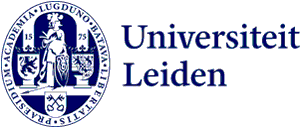Qualitative interviewing
Interviewing is a widely used method of data collection in the social sciences. However, doing qualitative interviews well is an art and a technique whose successful execution requires targeted training, practice and constant reflexivity. This course will introduce course participants to qualitative interviewing as a data collection/generation technique. We will cover different types of qualitative interviewing techniques, the selection of participants (sampling), access to participants, questionnaire design, data analysis (including different forms of coding), data management, and the ethics of interviewing. The course is meant for both those who are new to qualitative interviewing and those who already have some experience with it to review best practices and improve interview techniques.
- Target group
-
Lecturer
Researcher
Postdoctoral researcher
PhD candidate - Teachers
- Gisela Hirschmann (Senior Assistant Professor) Juan Masullo Jimenez (Assistant Professor) Corinna Jentzsch (Universitair docent)
- Method
-
Training course
- Hours
- 11 per day (33 hours total)
Deadline registration is Monday 27 May 2024
Interviewing is a widely used method of data collection in the social sciences. However, doing qualitative interviews well is an art and a technique whose successful execution requires targeted training, practice and constant reflexivity.
This course will introduce course participants to qualitative interviewing as a data collection/generation technique. We will cover different types of interviewing (e.g., elite interviews, semi-structured interviews, life histories, narrative interviews), selection of participants (sampling), access to participants, questionnaire design, data analysis (including different forms of coding), data management, and the ethics of interviewing.
The course is meant for both those who are new to qualitative interviewing and those who already have some experience with it to review best practices and improve interview techniques.
The first day of the course provides course participants with an overview of different types of interviewing. We will discuss and practice various techniques used for elite interviews, semi-structured and structured interviews, life histories, and narrative interviews, among others. On the second day, we will discuss how to plan and conduct interviews in light of the fieldwork context of participants, including data management and ethical issues. On the third day, we will focus on how to analyse the data collected from interviews.
During this course, participants will gain an in-depth understanding of the core interviewing techniques and will have the opportunity to practice and apply the skills learned.
After this course, participants will have obtained:
- Solid knowledge about the various qualitative interviewing techniques;
- Skills to reflect on the use of interview data in light of different research objectives;
- Knowledge on how to apply the techniques to various interview situations;
- A critical understanding of the ethical issues involved in interview research;
And the ability to critically assess the collection and use of interview data in published research.
Mode of instructions
Combination of short lectures, seminar discussion and short practical exercises, in class and outside class.
Reading list
A full reading list will be announced at least two weeks before the course start. Students will be informed about the list of works they need to read before the course two weeks before the start.
Fees
|
Target group |
One day |
Two days |
Three days |
|
PhD candidates FSW/FGGA |
FREE |
FREE |
FREE |
|
Staff FSW |
|
|
|
|
Other Leiden University PhD candidates |
|
|
|
|
Externals* |
|
|
|
*Externals are PhD candidates related to staff members of FSW (buitenpromovendi) and/or staff members of other Leiden University Faculties.
